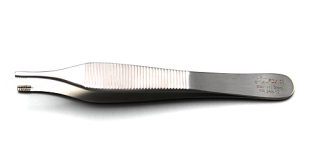Narcolepsy is defined as neurological sleep disorder which is chronic. It is characterized by severe, irresistible daytime sleepiness and sudden loss of muscle tone (cataplexy), and can be associated with sleep-onset or sleep-offset paralysis and hallucinations, frequent movement and awakening during sleep, and weight gain. The diagnosis is based upon clinical evaluation and additional para-clinical assessments which can be in the form of a questionnaire to get the information directly from the patient. Several methods can be used to assess or screen that if there are some behavioral symptoms related to narcolepsy with cataplexy.
The Swiss Narcolepsy Scale (SNS) can be defined as it is a brief subjective questionnaire that screens for the occurrence of several behavioral symptoms that may be associated with narcolepsy with cataplexy. In this screening method, the patient does a self-evaluation of his condition.
The Swiss Narcolepsy Scale is a simple screening tool that can also be used for hypocretin-deficient narcolepsy with cataplexy. It is designed to screen for a symptom profile that might be suggestive of narcolepsy with cataplexy. The patients who have excessive daytime sleepiness issues and whom the clinician may want to screen for potential narcolepsy with cataplexy are the main population for which this scale is being used.
It is a patient-reported scale consists of five items that evaluate the recurrence of five manifestations that can be utilized to screen the existence of narcolepsy with cataplexy. This screening strategy has been appeared to have high particularity and affectability for narcolepsy with cataplexy.
Swiss Narcolepsy Scale Range
Swiss Narcolepsy Scale consists of 5 questions and takes only a few minutes to complete. Each question represents a specific symptom and there are 5 options related to its degree of occurrence or intensity. The patient has to select one of the options related to the symptom according to his condition. There is a 5-point scale that contains the recurrence rate for every behavioral objection.
- The number 1 on the scale indicates that the symptom never happens.
- Number 2 on the scale suggests that it happens rarely (less than 1 in a month).
- Similarly, number 3 shows that it happens sometimes (1 to 3 times a month).
- Number 4 shows that it happens often (1 to 2 times a week).
- And the number 5 which is maximum on the scale, shows that it happens frequently i.e “almost always.”
The final score is evaluated after calculating the weight of each question depending upon a positive or negative factor.
Swiss Narcolepsy Scale Results
The Swiss Narcolepsy Scale (SNS) is very accurate and can assess the 5 symptoms which are associated with narcolepsy with cataplexy. During the screening with the Swiss Narcolepsy Scale, there is Measurement of recurrence of 5 potential side effects and afterward, the outcomes are determined. The following are the issues for which patients need to answer properly as per the choices on the scale.
- Q 1 – How often are you incapable to nod off
- Q 2 – How often do you feel awful or not all around rested toward the beginning of the day?
- Q 3 – How often do you sleep during the day?
- Q 4 – How often have you encountered frail knees/clasping of the knees during feelings like snickering, satisfaction, or outrage?
- Q 5 – How often have you encountered listing of the jaw during feelings like snickering, bliss, or outrage?
After the inquiries, an evaluation of the appropriate responses is being done and the score is determined to utilize the equation. A Swiss Narcolepsy Scale (SNS) score <0 is reminiscent of narcolepsy with cataplexy. SNS gives results with high particularity and affectability and in this way, it is better than different scales utilized for this reason.
Swiss Narcolepsy Scale Scoring
Swiss Narcolepsy Scale (SNS) score can be determined utilizing the condition which is referenced after:
(6×Q1 + 9×Q2 – 5×Q3–11×Q4 – 13×Q5 + 20)
On the off chance that the score is under 0, it recommends that the patient is experiencing narcolepsy which includes cataplexy.
Familiarity with narcolepsy is low and screening instruments are required. There are various sorts of scales that are being utilized to screen the narcolepsy which are The Epworth Sleepiness Scale (ESS), the Ullanlinna Narcolepsy Scale (UNS), and all the more as of late the Swiss Narcolepsy Scale (SNS). Swiss Narcolepsy Scale (SNS) is progressively precise and it rapidly surveys the recurrence of 5 side effects that can be utilized to screen for the nearness of narcolepsy with cataplexy. Various examinations were directed with the intends to evaluate the estimation of the Swiss Narcolepsy Scale (SNS) in another arrangement of patients with narcolepsy with cataplexy (NC), and to contrast its affectability and explicitness and the Epworth Sleepiness Scale (ESS) and Ullanlinna Narcolepsy Scale (UNS).
As indicated by the consequences of study SNS is prevalent and precise than ESS and UNS.
 Health & Care Information
Health & Care Information 


